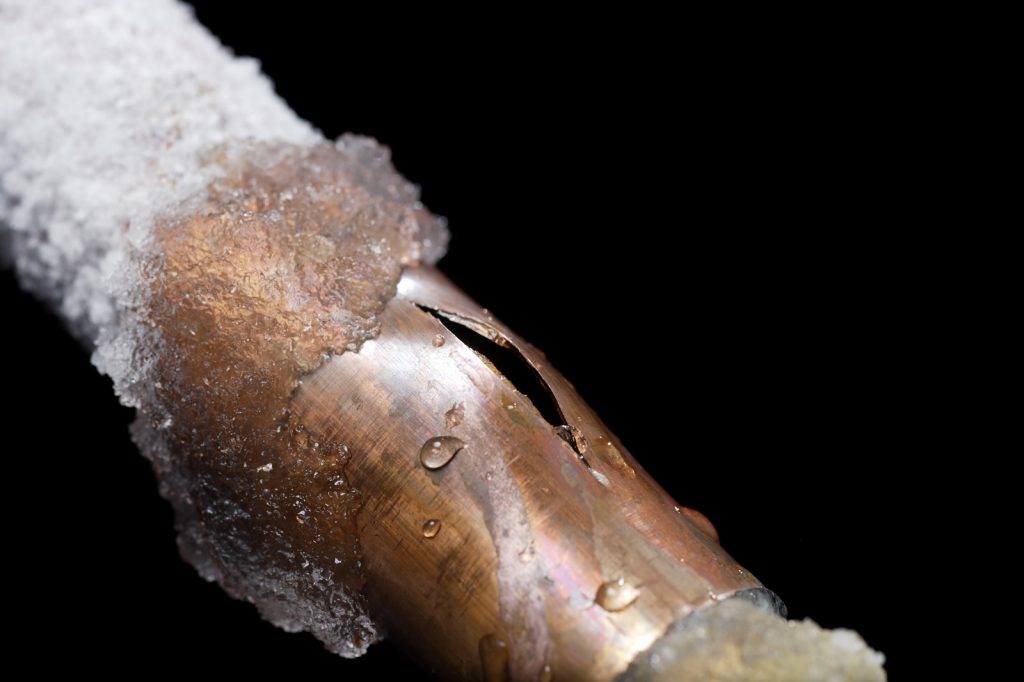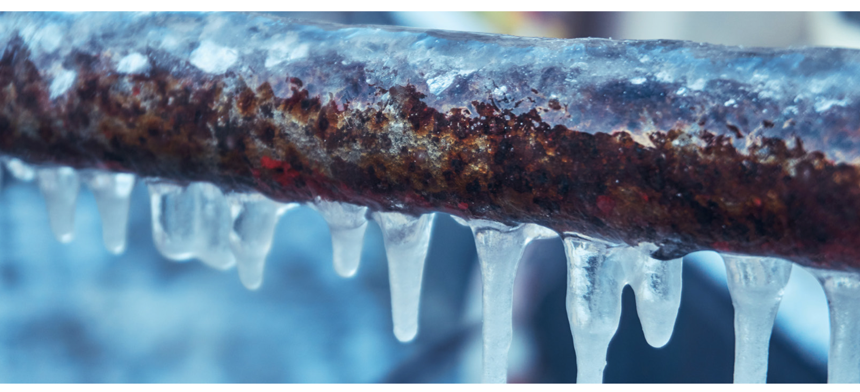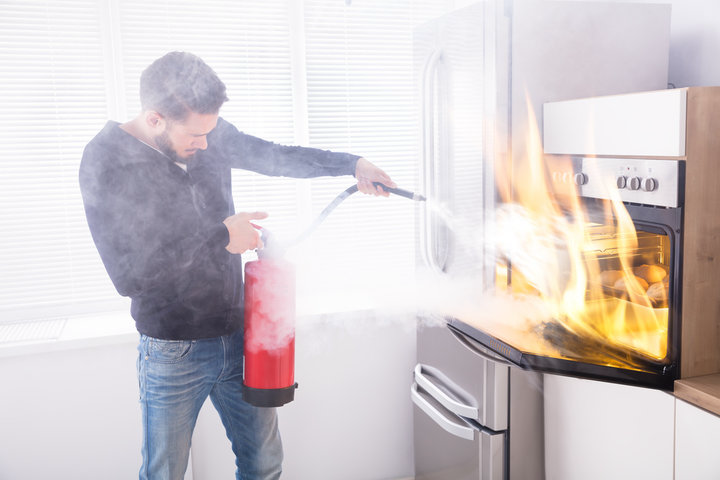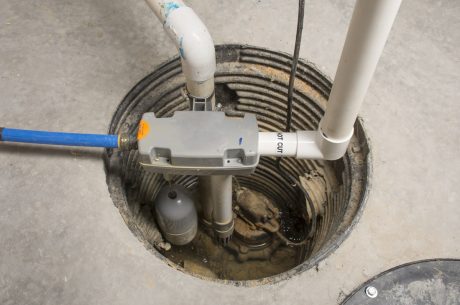Water bursting through frozen pipes is a common sight in homes during harsh winters in Connecticut. You’d be surprised how many calls we get to restore properties affected by water damage from frozen pipes throughout Fairfield County, CT and Westchester County, NY. Check out how pipes freeze and how to prevent pipes from freezing to avoid water damage this season.
Which water pipes can freeze?
The water lines that freeze include outdoor hose bibs, swimming pool supply lines, and water sprinkler lines. Pipes in unheated interior areas, such as basements, crawl spaces, attics, garages, and kitchen cabinets, and those that run against exterior walls with little or no insulation, are also susceptible to freezing. Check your homes and ask an expert to help if you are unable to access these areas easily.
What contributes to frozen pipes?
The building construction — Buildings that have a poor design and do not withstand severe weather sufficiently can contribute to their own damage. The type and age of the plumbing system is also a factor. Rust or corrosion weakens pipes, making leaks more likely to occur. When freeze-expansion occurs, corroded pipes will often split open. When thawing begins or when the water is turned back on, damage can occur.
The quality and quantity of insulation—During the renovation of older homes, blown-in or foam insulation is sometimes added to wall cavities between interior and exterior wall surfaces and between studs. This process may actually insulate heat away from pipes next to the exterior wall surfaces, making them more prone to freezing.
The decline in temperature—Surprisingly, pipes can also freeze in the warmer climates of southern states. Go figure! It doesn’t just happen every year in Greenwich, CT. In these areas, buildings may not be adequately constructed for cold weather. Pipes often run through non-insulated or under-insulated attics, crawl spaces, or walls. If the temperature drops below freezing for even a day, these pipes may freeze and break.
Power outages — Winter wind, snow, and ice storms frequently damage electric power lines and equipment, resulting in interruptions of electric power. Most heating systems depend on electricity, and when the power goes off, so does the heat. In severe cold weather, this can cause extensive freeze damage before power is restored. While the trees in Greenwich, CT are beautiful; they are known locally for causing significant damage in winter storms.
What contributes to frozen pipes?
Damage generally occurs when the water supply is turned back on. Since most modern plumbing lines are inside walls, homeowners usually notice a leak only after water has damaged floors, carpet, walls, or ceilings. Occasionally, an occupant hears the sound of spraying water, but by then it may be too late. The leak has already caused some degree of damage.
Frozen water pipes can result in significant to extreme water damage, and the cost to repair is often huge! The following tips can help you prevent pipes from freezing.

How to prevent pipes from freezing:
Empty the water in your swimming pool and water sprinkler supply lines. Refrain from putting antifreeze in these lines whenever possible. Remember that antifreeze is detrimental to the environment, and is hazardous to humans, pets, wildlife, and landscaping.
Empty the water in your plumbing system thoroughly. If water lines droop or bend, there may be low areas that are challenging to empty completely. To be most effective, use compressed air to blow out the lines. If this is not properly done, some amount of water will remain in the low points of the lines that can freeze.
Disconnect, empty, and store outdoor hoses for the season. Shut off the inside valves supplying outdoor hose bibs. Open the outside hose bibs to allow water to drain. Remember to keep the outside valve open so that any water remaining in the pipe can expand without causing the pipe to break.
Check for water supply lines in the unheated areas of your home. Those include the basement, crawl space, attic, garage, and under kitchen and bathroom cabinets. Insulate both hot and cold water pipes in these areas to help prevent freezing. Use specific products for insulating water pipes like a “pipe sleeve” or installing UL-listed heat tape, heat cable, or similar materials on exposed water pipes.
What can you do if a pipe bursts?
If a pipe bursts, immediately shut off the water at the main valve. Call a plumber and then call PuroClean on emergency line at 203.399.0001 to evaluate and remediate any water damage that occurred. Our technicians stand ready to provide water damage restoration services to your property 24/7. We serve clients throughout the Greater Greenwich, CT area into both Westchester, NY and throughout Fairfield County, CT. To read more about how to get your home prepared for the frigid winter, check out Tips to Avoid a Cataclysmic Effect.



